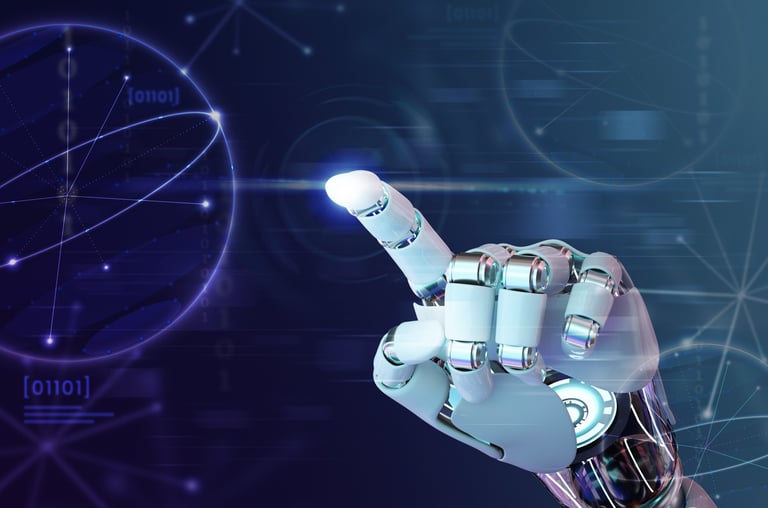By Edition8 News Staff
May 10, 2025
Artificial Intelligence (AI) is no longer a futuristic concept—it’s embedded in our daily lives, often in ways we don’t even notice. From waking up to the sound of a smart assistant to relying on recommendation algorithms for entertainment and shopping, AI is steadily taking over routine tasks and reshaping how we live, work, and interact.
One of the most visible examples of AI in everyday life is the use of virtual assistants like Amazon Alexa, Apple’s Siri, or Google Assistant. These tools use natural language processing to understand voice commands, set reminders, send messages, check the weather, and even control smart home devices. Tasks that once required manual input—like adjusting a thermostat, turning off lights, or checking traffic—can now be done instantly with a voice command.
AI algorithms drive much of the personalization we see online. Streaming platforms like Netflix and Spotify use AI to analyze your habits and suggest shows or music you’re likely to enjoy. E-commerce websites like Amazon tailor product recommendations based on your browsing and purchasing history. These systems use machine learning models to sift through massive datasets and make accurate predictions, saving users time and enhancing the overall experience.
AI is increasingly assisting in writing and communication. Email platforms now use AI to suggest responses, sort messages into categories (such as Primary, Promotions, and Spam), and even detect phishing attempts. Tools like Grammarly use AI to proofread and improve writing, while AI-powered chatbots are now standard on many websites for customer support—handling FAQs, tracking orders, or solving simple technical issues around the clock.
Whether you're using Google Maps to find the fastest route or relying on ride-sharing apps like Uber, AI is playing a key role. These apps use AI to analyze traffic patterns, suggest routes, and match riders with drivers. In logistics and delivery, companies like UPS and FedEx use AI to optimize delivery routes, saving time and fuel. Autonomous vehicles, while still in development, represent the next leap in AI-driven transport, with AI systems capable of making real-time decisions on the road.
AI is also quietly managing household appliances. Smart refrigerators can track expiration dates and suggest grocery lists. Robot vacuum cleaners like Roombas use AI to map rooms and clean efficiently. Some smart ovens adjust cooking times based on the type of food, while washing machines optimize water and detergent use. These features make homes more energy-efficient and convenient.
AI helps automate financial tasks through budgeting apps, fraud detection in banking, and even robo-advisors that manage investment portfolios. These tools use machine learning to monitor transactions, suggest saving goals, and adjust financial strategies in real time, making personal finance more accessible and less time-consuming.
AI is not just taking over menial or repetitive tasks—it’s enhancing convenience, personalization, and efficiency across nearly every aspect of daily life. As AI continues to evolve, it’s likely to play an even greater role in making our routines smoother and more connected. The challenge ahead lies in ensuring these technologies remain ethical, secure, and accessible for all.
AI takeover



